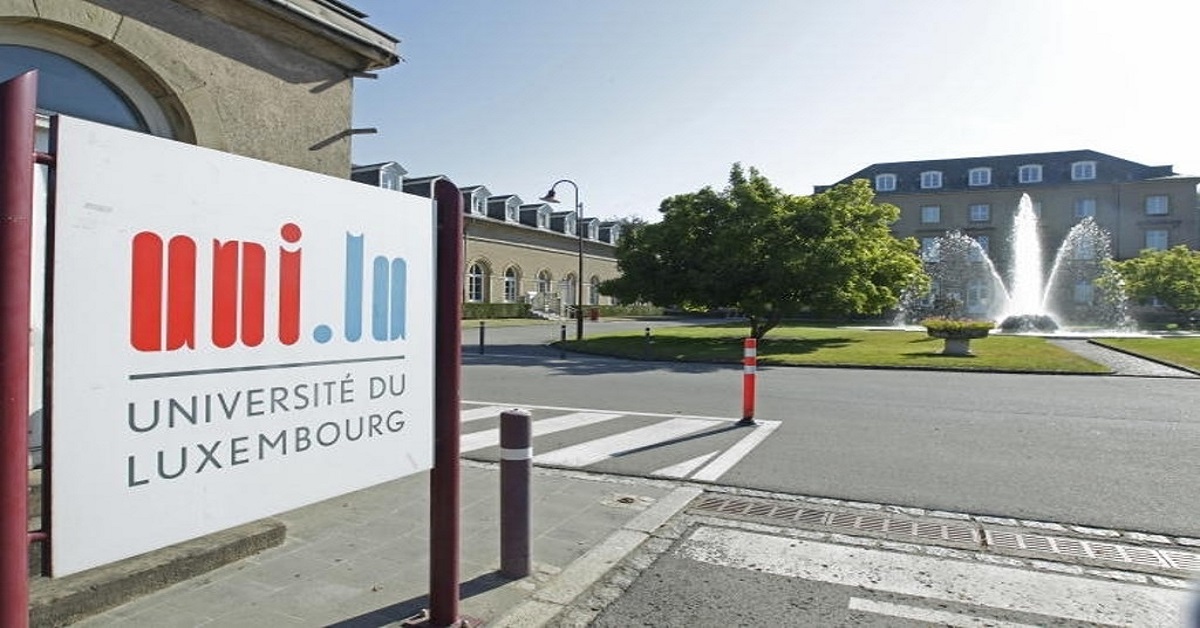
The Luxembourg Centre for Systems Biomedicine (LCSB) is an interdisciplinary research centre of the University of Luxembourg. We conduct fundamental and translational research in the field of Systems Biology and Biomedicine – in the lab, in the clinic and in silico. We focus on neurodegenerative processes and are especially interested in Alzheimer’s and Parkinson’s disease and their contributing factors.
The LCSB recruits talented scientists from various disciplines: computer scientists, mathematicians, biologists, chemists, engineers, physicists and clinicians from more than 50 countries currently work at the LCSB. We excel becausewe are truly interdisciplinary and together we contribute to science and society.
Your Role…
The Systems Control Group seeks a highly skilled Postdoctoral Research Associate. Postdocs are expected to interact with the rest of the group, especially with PhD students and support grant writing.
The open position in part of a JPND project, funded by FNR. The project aims to enhance the outcome of Deep Brain Stimulation (DBS) in Parkinson’s disease (PD) through the individualization and optimization of stimulation settings. Our vision is to replace the current practice of selecting stimulation pulse width, amplitude, and frequency by trial and error with a model-based patient- specific calculation. This will be achieved by incorporating insights from novel clinical studies into individualized mathematical models underpinning clinically relevant DBS programming tools. The consortium is composed of neurologists, electrical and control engineers, computer scientists, movement scientists, and neurosurgeons from four European countries.
Using arange of mathematical tools, this project aims to improve our understanding of how DBS affects the brain. It combines all available datasets in the project to create models capturing patient-specific and personalized brain dynamics before and after DBS stimulation. Models will capture stimulation at a wide range of frequencies, pulse widths and amplitudes across different contact configurations. Data includes EEG, peripheral sensors (such as accelerometers), LFPs and clinical data. Changing stimulation parameters will give us a nonlinear view of changes in brain connections. This will build new hypotheses on the effect of DBS stimulation on different areas of the brain and help us predict effective stimulation parameters.
More details can be found here
What we expect from you…
Hold a Ph.D. degree in (applied or theoretical) mathematics, theoretical physics, engineering, or computer science. Candidates must have a publication record in data analysis and machine learning. Experience in computational neuroscience is a plus. Excellent working knowledge of English is required.
Here’s what awaits you at the LCSB…
- Excellent work environment with state-of-the-art infrastructure, laboratory and administrative support
- Truly connected. We work together with hospitals and research institutes on a national and international level as well as industrial partners. Connection between science and society is very important to us. From our school lab – the Scienteens Lab – to the different outreach activities and collaborative partnerships with patient associations, we love to listen to society’s needs and share our passion for science
- Be part of a multicultural team. At the LCSB we have more than 50 nationalities. Throughout the year, we organise team-building events, networking activities and more
In Short…
- Contract type: Full contract for 1.5 years (with the possibility of renewal up to 5 years contingent on performance and availability of funding)
- Work hours: Full Time 40.0 Hours per Week
- Location: Belval
- Job reference: UOL05297
The yearly gross salary for every Postdoctoral Researcher at the UL is EUR 79095 (full time)
How to apply…
Applications should contain the following documents:
- A detailed Curriculum Vitae and a motivation letter that includes a description of how you would contribute to the project and research group. These two documents should be emailed to Sofia Pereira (sofia.pereira@uni.lu) in a single PDF. Use the job title and reference number mentioned above in the subject line of your email. If you receive an offer, you will also need to complete the online submission at the bottom
- Please have at least three references email their confidential letters directly to Sofia Pereira (sofia.pereira@uni.lu) within two weeks after submitting the application. Without these references your application will not be processed
Early application is highly encouraged, as the applications will be processed upon reception. Please apply formally through the HR system. Applications by email will not be considered.
The University of Luxembourg embraces inclusion and diversity as key values. We are fully committed to removing any discriminatory barrier related to gender, and not only, in recruitment and career progression of our staff.
About the University of Luxembourg…
University of Luxembourg is an international research university with a distinctly multilingual and interdisciplinary character. The University was founded in 2003 and has more than 6,700 students and more than 2,000 employees from around the world. The University’s faculties and interdisciplinary centres focus on research in the areas of Computer Science andICT Security, Materials Science, European and International Law, Finance and Financial Innovation, Education, Contemporary and Digital History. In addition, the University focuses on cross-disciplinary research in the areas of Data Modelling and Simulation as well as Health and System Biomedicine. Times Higher Education ranks the University of Luxembourg #3 worldwide for its “international outlook,” #20 in the Young University Ranking 2021 and among the top 250 universities worldwide.
General information:
The Systems Control group, led by Prof. Jorge Goncalves, develops computational methods that extract valuable information from a wide range of molecular and clinical time-series data. Bringing together diverse backgrounds (e.g. mathematics, control systems, machine learning, engineering and physics), we engage this problem from different perspectives for broad-ranging applications in biomedicine, including neurodegenerative and cardiovascular diseases, mechanisms of circadian rhythms and stem cell differentiation. For more information, please visit our website.
For further information, please contact Jorge Goncalves (jorge.goncalves@uni.lu).





